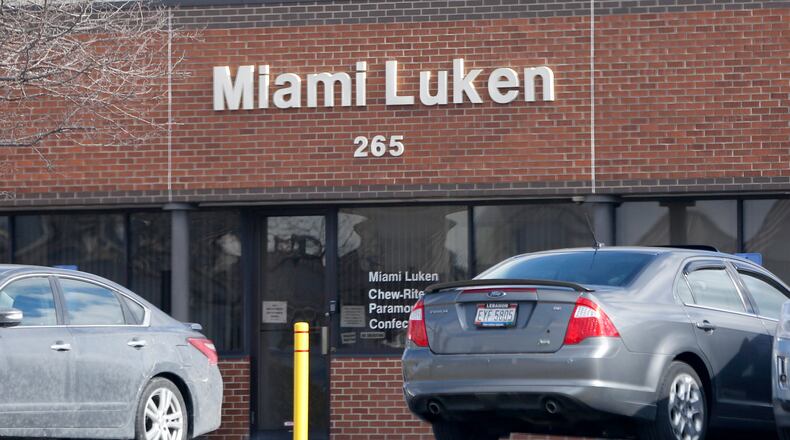The conspiracy charge against Springboro pharmaceutical distributor Miami-Luken is a landmark case because it was the second opioid distributor to be charged with a felony in connection to the public health crisis.
But also, the case is against two former employees of the now defunct pharmaceutical company, which distributed a small portion of the national supply. Federal data shows Miami-Luken sold about 120 million oxycodone and hydrocodone pills from 2006 to 2012, compared to McKesson, the largest distributor in the country, which sold 14 billion of the pills over that time frame.
Richard Blake, attorney representing Miami-Luken, said the company has shut its doors and no longer in business.
With the 2019 indictments, the DOJ accused Miami-Luken, former president Anthony Rattini, former compliance officer James Barclay, and two West Virginia pharmacists of conspiring to distribute controlled substances.
Miami-Luken, Rattini and Barclay have tried to get the indictment dismissed, saying the government unlawfully based its prosecution on the company’s alleged failure to comply with DEA guidance letters.
The court, however, in March dismissed their attempt and said the Miami-Luken defendants were mischaracterizing the crime they’ve been charged with. They aren’t charged with failing to report suspicious orders or maintain controls, although those are aspects of the broader conspiracy charge.
Instead, the prosecution based its case on an established precedent that anyone may be held liable for conspiring to distribute controlled substances for not a legitimate medical purpose.
In one example in the documents filed by the prosecution, Miami Luken’s customer Westside Pharmacy had an internal threshold of 6,000 doses of oxycodone a month, but in March 2011 Miami-Luken is accused of shipping 68,400 doses to Westside.
In another example, Tug Valley had an internal limit of 36,000 doses of hydrocodone per month, according to the documents. But the DOJ alleges December 2013 that Miami-Luken distributed 67,200 doses of the opioid.
The Miami-Luken defendants, pharmacist Devonna Miller-West at Westside Pharmacy and Samuel Ballengee at Tug Valley Pharmacy are accused of “engaging in a conspiracy to distribute and dispense controlled substances.”
The Miami-Luken defendants also separately alleged the jury was given misinformed testimony and improper instructions, but in March Judge Matthew McFarland declined to go let the group dismiss the indictment or see the secret grand jury materials.
The lawsuits and fallout from the public health crisis have led to a series of finger pointing over who is to blame, from accusations of federal regulators not enforcing compliance; manufacturers advertising and incentivizing too many pills; distributors profiting off of unsafe levels of shipments; prescribers issuing inappropriate scripts; pharmacies selling volumes they should have known are unsafe; or the addicted people seeking the drugs. Even more peripheral figures like marketers and consultants have been pulled into the circle of blame.
The parties have in recent years been attempting to sort out the answers in the courts.
Besides the suit accusing Miami-Luken and others of a conspiracy, a landmark West Virginia trial is underway against the “Big Three” U.S. distributors, AmerisourceBergen, Columbus-based Cardinal Health and McKesson Corp.
The Associated Press reported similar lawsuits have resulted in multimillion-dollar settlements, but this is the first time the allegations have wound up at federal trial. The result could have huge effects on hundreds of similar lawsuits that have been filed across the country.
Opioid overdoses have been linked to the deaths of nearly 500,000 Americans since 2000 and reached a record of nearly 50,000 in 2019.
About the Author

